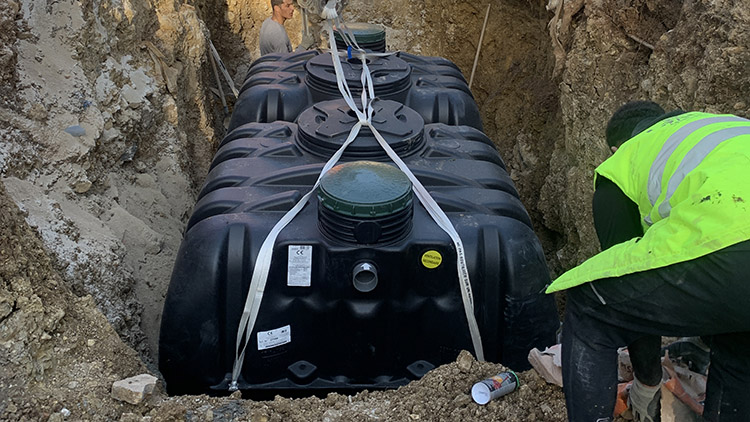- info@paca-environnement.com
- 1 rue du Gabian – Le Thalès 98000 Monaco
ANC installation

Do you have a question?

ANC installation
The installation of non-collective sanitation (ANC) is a wastewater treatment system designed for areas that are not served by a public sanitation network (mains sewer).
This generally includes single-family homes, mountain cabins, isolated farms, small businesses, and other buildings located outside of urban areas.
Here is a general explanation of the steps to follow to install a non-collective sanitation (ANC) system in a sustainable manner:
1. Preliminary study:
Before you begin, it is important to conduct a preliminary site survey to determine specific sanitation needs. This includes assessing the soil type, water table level, land topography and property size. This phase will be taken care of by the hydrogeological engineer and your account manager, in order to find in your presence the best possible options, both technical, aesthetic and financial.
2. System design:
Depending on the results of the preliminary study, PACA Environnement will design a sanitation system adapted to the needs of the site. The type of system chosen will depend on the characteristics of the terrain and local regulations. The most common systems include septic tanks, compact filters, micro-sewage treatment plants.
3. Obtaining authorizations:
Before proceeding with installation, it is necessary to obtain all necessary permissions from local authorities, including building permits and health approvals. These requirements vary from one municipality to another. PACA Environnement is experienced in administrative twists and turns for all sanitation projects.
4. Excavation and installation of the system:
Once the authorizations have been obtained, the earthworks begin. This involves the creation of excavations and trenches to accommodate the chosen sanitation system. System components, such as tanks, pipes, filters, etc., are installed according to the design plan specifications. This phase is crucial because the Non-Collective Sanitation Service (SPANC) will be very scrupulous during its implementation control, and will only issue you with the certificate of conformity in the case where the entire installation corresponds perfectly to both the initial study, municipal bylaws and DTU 64.1.
5. Connection of drains:
The internal sewer pipes of the house or building are connected to the installed sewerage system. This generally requires plumbing work to ensure flawless operation.
6. Tests and adjustments:
Once installation is complete, tests are performed to ensure the system is working properly. Necessary adjustments are made to ensure efficient disposal of wastewater.
7. Regular maintenance:
An ANC requires regular maintenance to operate efficiently and avoid problems. This may include periodically emptying the septic tank, cleaning filters, checking pumps (if necessary), etc.
8. Monitoring and compliance:
ANCs are subject to regular monitoring and inspections by local authorities to ensure their compliance with current health and environmental standards. It is essential to use qualified professionals to design, install and maintain an ANC, as incorrect installation can lead to environmental and public health problems.
Additionally, it is important to comply with local regulations and cooperate with relevant authorities throughout the installation and maintenance process. PACA Environnement will offer you a maintenance contract at the end of the work to relieve you of these annoying tasks.

